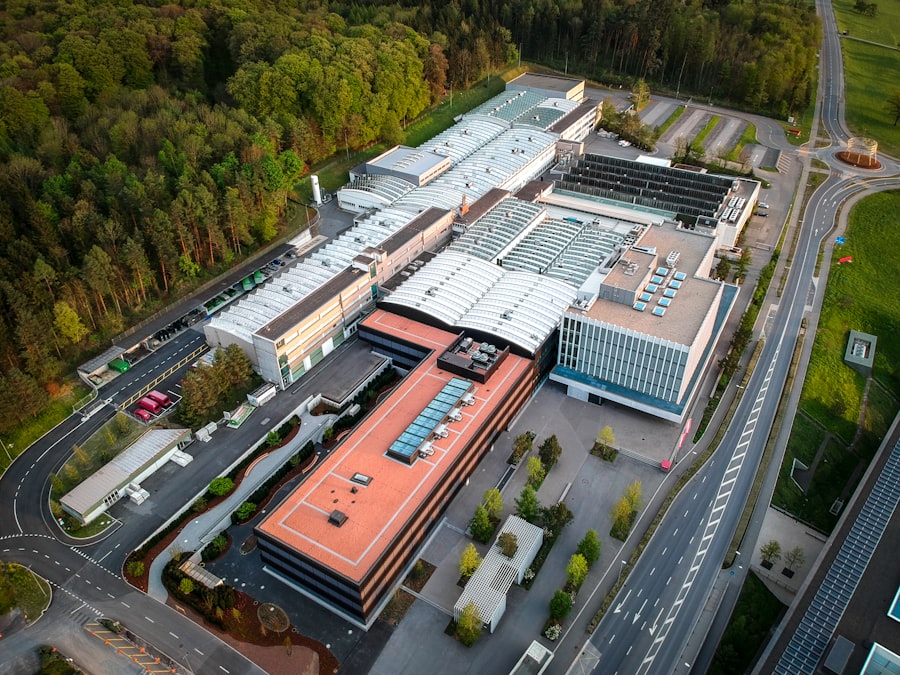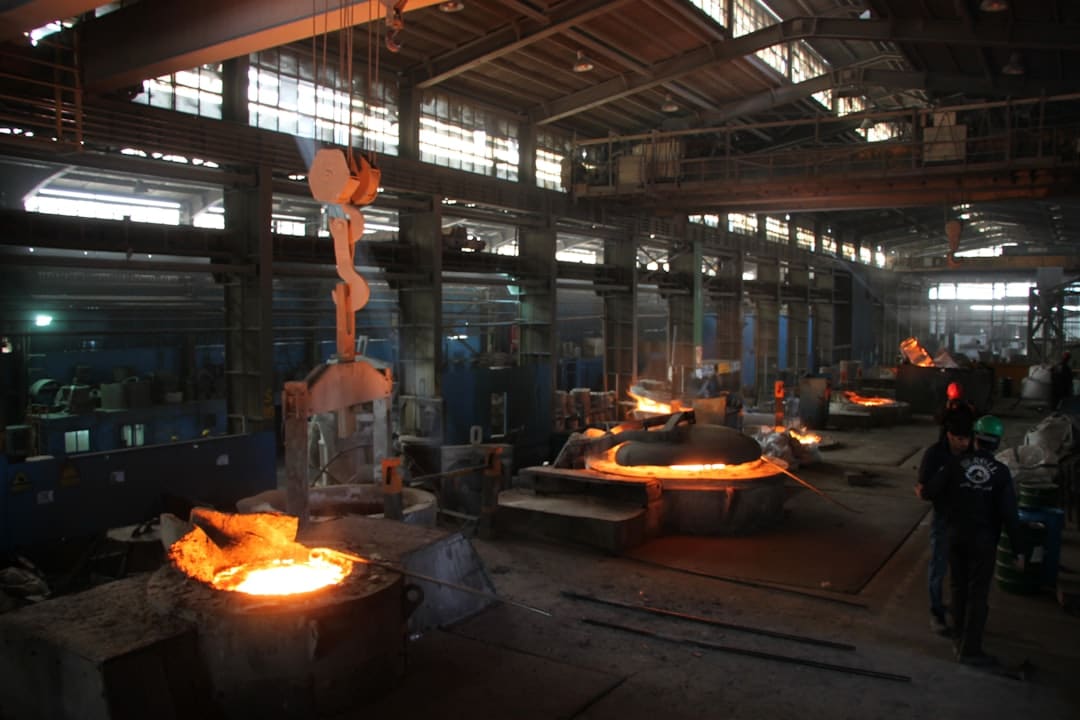The advent of 5G technology marks a significant leap in the evolution of wireless communication, promising unprecedented speed, reduced latency, and enhanced connectivity. Unlike its predecessors, 5G is designed to support a vast array of devices and applications, making it a cornerstone for the Internet of Things (IoT) and smart technologies. With theoretical download speeds reaching up to 10 Gbps and latency as low as one millisecond, 5G is not merely an incremental upgrade; it represents a paradigm shift in how data is transmitted and processed.
This new generation of mobile networks is set to revolutionize various sectors, including healthcare, transportation, and manufacturing. The implications of 5G extend far beyond faster internet access. It enables real-time data exchange and communication between devices, fostering an environment where automation and artificial intelligence can thrive.
As industries increasingly adopt smart technologies, the demand for robust and reliable connectivity becomes paramount. In this context, 5G serves as the backbone for innovations such as modular smart factories, which leverage advanced manufacturing techniques and digital technologies to enhance productivity and efficiency. The integration of 5G into these environments is not just beneficial; it is essential for realizing the full potential of Industry 4.0.
Key Takeaways
- 5G technology is the next generation of mobile internet connectivity, offering faster speeds and more reliable connections than ever before.
- Modular smart factories are on the rise, allowing for flexible and efficient production processes through the use of interchangeable modules and components.
- 5G plays a crucial role in empowering modular smart factories by providing high-speed, low-latency connectivity for real-time monitoring and control of production processes.
- The advantages of 5G in smart factory operations include increased productivity, improved efficiency, and the ability to support a larger number of connected devices and sensors.
- The implementation of 5G in modular smart factories requires careful consideration of factors such as network coverage, security, and interoperability with existing systems.
The Rise of Modular Smart Factories
Modular smart factories represent a transformative approach to manufacturing, characterized by flexibility, scalability, and efficiency. Unlike traditional manufacturing setups that often rely on fixed production lines, modular factories utilize interchangeable units or modules that can be easily reconfigured to meet changing demands. This adaptability allows manufacturers to respond swiftly to market fluctuations, customize products more effectively, and optimize resource utilization.
The concept of modularity in manufacturing is not entirely new; however, its implementation has gained momentum with advancements in technology. The integration of IoT devices, robotics, and artificial intelligence has enabled manufacturers to create interconnected systems that can monitor performance in real-time and make data-driven decisions.
This shift towards modularity is also influenced by the growing emphasis on sustainability and resource efficiency. By adopting modular designs, manufacturers can minimize waste and energy consumption while maximizing output. As industries strive for greater resilience in the face of global challenges, modular smart factories are emerging as a viable solution.
The Role of 5G in Empowering Modular Smart Factories

5G technology plays a pivotal role in empowering modular smart factories by providing the high-speed connectivity necessary for seamless communication between devices and systems. In a modular factory setting, various components—such as machines, sensors, and control systems—must work in harmony to optimize production processes. 5G facilitates this integration by enabling real-time data transmission, allowing for instantaneous feedback and adjustments.
This capability is particularly crucial in environments where precision and timing are critical to maintaining operational efficiency. Moreover, the low latency associated with 5G networks enhances the responsiveness of automated systems within modular factories. For instance, robotic arms can receive commands almost instantaneously, allowing them to perform tasks with remarkable accuracy and speed.
This level of responsiveness is essential for applications such as assembly lines or quality control processes, where even minor delays can lead to significant inefficiencies or defects. Additionally, 5G supports a higher density of connected devices, which is vital for modular factories that rely on numerous IoT sensors to monitor equipment health, track inventory levels, and analyze production metrics.
Advantages of 5G in Smart Factory Operations
The advantages of implementing 5G technology in smart factory operations are manifold. One of the most significant benefits is the enhanced data throughput that allows for the simultaneous transmission of large volumes of information from multiple devices.
For example, real-time analytics can help identify bottlenecks in production lines or predict equipment failures before they occur, thereby minimizing downtime and maintenance costs. Another key advantage of 5G is its ability to support advanced applications such as augmented reality (AR) and virtual reality (VR) in training and maintenance scenarios. With high-speed connectivity, workers can access AR overlays that provide real-time guidance during assembly or repair tasks.
This not only improves efficiency but also enhances safety by reducing the likelihood of human error. Furthermore, the scalability offered by 5G networks allows manufacturers to expand their operations without significant infrastructure investments. As new technologies emerge or production needs change, modular factories can easily integrate additional modules or devices into their existing systems.
Implementation of 5G in Modular Smart Factories
Implementing 5G technology in modular smart factories involves several critical steps that require careful planning and execution. First and foremost, manufacturers must assess their current infrastructure to determine compatibility with 5G networks. This assessment includes evaluating existing equipment, software systems, and network capabilities to identify any necessary upgrades or replacements.
Collaborating with telecommunications providers is essential during this phase to ensure that the factory’s specific needs are met. Once the infrastructure is prepared, manufacturers can begin deploying 5G-enabled devices and systems within their modular setups. This may involve installing IoT sensors on machinery to monitor performance metrics or integrating advanced robotics that leverage 5G connectivity for enhanced functionality.
Training employees on how to utilize these new technologies effectively is also crucial for maximizing the benefits of 5G implementation. As workers become more adept at using connected devices and interpreting data analytics, they can contribute to continuous improvement initiatives that drive operational excellence.
Challenges and Considerations in Adopting 5G for Smart Factories

While the potential benefits of adopting 5G technology in smart factories are substantial, several challenges must be addressed to ensure successful implementation. One significant concern is the cost associated with upgrading existing infrastructure to support 5G networks. Manufacturers may face substantial investments in new equipment, software solutions, and network enhancements.
Additionally, smaller companies may struggle to justify these costs without clear evidence of return on investment. Another challenge lies in cybersecurity risks associated with increased connectivity. As more devices become interconnected through 5G networks, the potential attack surface for cyber threats expands significantly.
Manufacturers must prioritize robust cybersecurity measures to protect sensitive data and maintain operational integrity. This includes implementing encryption protocols, conducting regular security audits, and training employees on best practices for safeguarding information.
Case Studies of Successful 5G-Enabled Modular Smart Factories
Several companies have successfully integrated 5G technology into their modular smart factory operations, showcasing its transformative potential. One notable example is Siemens’ Amberg Electronics Plant in Germany, which has adopted a comprehensive digitalization strategy that includes 5G connectivity. By leveraging this technology, Siemens has enhanced its production processes through real-time monitoring and predictive maintenance capabilities.
The plant’s ability to quickly adapt to changing production demands has resulted in increased efficiency and reduced lead times. Another compelling case study is that of Ericsson’s factory in Lewisville, Texas, which has implemented a private 5G network to streamline its manufacturing operations. The deployment of 5G has enabled Ericsson to achieve higher levels of automation while maintaining stringent quality control standards.
By utilizing connected devices throughout the production process, the company has improved visibility into its operations and enhanced collaboration among teams. These examples illustrate how 5G technology can drive innovation and operational excellence within modular smart factories.
The Future of 5G in Modular Smart Factory Innovation
Looking ahead, the future of 5G technology in modular smart factory innovation appears promising as industries continue to embrace digital transformation. As manufacturers increasingly recognize the value of interconnected systems and data-driven decision-making, the demand for robust 5G networks will only grow. Future advancements in 5G technology may further enhance capabilities such as edge computing, which allows data processing closer to the source rather than relying solely on centralized cloud servers.
Moreover, as artificial intelligence becomes more integrated into manufacturing processes, the synergy between AI and 5G will unlock new possibilities for automation and optimization. For instance, AI algorithms can analyze vast amounts of data generated by connected devices in real-time, enabling predictive analytics that drive proactive decision-making. This convergence will likely lead to even greater efficiencies and innovations within modular smart factories.
In conclusion, the integration of 5G technology into modular smart factories represents a significant step forward in manufacturing capabilities. By enabling real-time communication between devices and systems, enhancing automation processes, and providing valuable insights through data analytics, 5G empowers manufacturers to operate more efficiently and responsively than ever before. As industries continue to evolve in response to market demands and technological advancements, the role of 5G will be central to shaping the future landscape of manufacturing.
In a recent article discussing the benefits of 5G technology in modular smart factories, it is important to consider the role of reliable hosting providers in ensuring seamless connectivity. According to a recent article on the best VPS hosting providers for 2023, having a strong and secure hosting service is crucial for maintaining efficient operations in smart factories. Additionally, utilizing the best software tools, as highlighted in the best software to create training videos, can enhance employee training and productivity in these advanced manufacturing environments. Furthermore, choosing the right technology devices, such as the best tablet for everyday use as discussed in what is the best tablet to buy for everyday use, can further optimize the performance of modular smart factories.
FAQs
What is 5G?
5G is the fifth generation of wireless technology, designed to provide faster and more reliable communication networks compared to previous generations.
What are modular smart factories?
Modular smart factories are manufacturing facilities that utilize modular and flexible production systems, as well as advanced technologies such as automation, robotics, and data analytics to improve efficiency and productivity.
How does 5G empower modular smart factories?
5G enables faster and more reliable wireless communication within smart factories, allowing for real-time monitoring and control of production processes, as well as seamless connectivity between machines and devices.
What are the benefits of 5G for modular smart factories?
Some benefits of 5G for modular smart factories include reduced latency, increased capacity for connecting a large number of devices, improved reliability, and support for advanced technologies such as augmented reality and virtual reality for maintenance and training purposes.
How does 5G impact the future of manufacturing?
5G is expected to revolutionize the manufacturing industry by enabling the widespread adoption of smart and connected factories, leading to increased efficiency, flexibility, and innovation in production processes.

